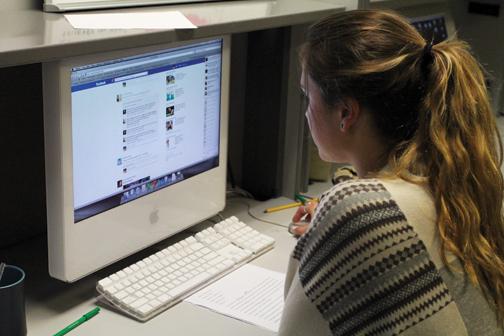 It’s 7 a.m. on a Monday morning. You are starving so you pour a bowl of cereal, but before you start to eat you whip out your iPhone 5 and take a picture of your five-star meal. The picture is posted with the simple caption, “Breakfast,” followed by numerous hash tags: “#thestruggleisreal, #collegelife and #ihatemondays” and you go down in Instagram history with more than a hundred “likes” for your mediocre breakfast. But that’s not the crazy part—the crazy part is that, out of the 100 friends that “liked” your Instagram photo, only one will wave when you see them on campus that same morning. Social media is exhilarating; it can make you feel powerful and popular, but the “likes” people get on sites such as Instagram and Facebook are replacing physical human interaction.
It’s 7 a.m. on a Monday morning. You are starving so you pour a bowl of cereal, but before you start to eat you whip out your iPhone 5 and take a picture of your five-star meal. The picture is posted with the simple caption, “Breakfast,” followed by numerous hash tags: “#thestruggleisreal, #collegelife and #ihatemondays” and you go down in Instagram history with more than a hundred “likes” for your mediocre breakfast. But that’s not the crazy part—the crazy part is that, out of the 100 friends that “liked” your Instagram photo, only one will wave when you see them on campus that same morning. Social media is exhilarating; it can make you feel powerful and popular, but the “likes” people get on sites such as Instagram and Facebook are replacing physical human interaction.
College students walk around campus consumed by their cell hones, but are they really talking to anyone or are they merely avoiding the pang of loneliness one feels when walking through San Diego State? I gear up for the unforgiving Campanile Walkway: headphones in and cell phone ready. I refuse to be the only student who does not wear the shield of technology, but why is there even a need for this cover? We all use social media sites such as Facebook, Twitter and Instagram that allow us to showcase our lives for our “friends” and “followers” to see, but sometimes it seems that we are so busy documenting our lives, we forget to live them.
I think the detachment of our generation is our biggest downfall. But social media is not all bad, and at times I think it makes our campus more social.
“It allows people on our campus to ‘meet’ in a virtual sense before they meet physically,” public health sophomore Melissa McGuire said. “The Facebook groups for residence halls, graduating years and even specific classes allow communication with those you do not necessarily know.”
Phrases such as “Add me on Facebook,” “Do you have a Tumblr?” “What’s your Twitter handle?” or “Follow me on Instagram” are common. With just one accepted friend request you are given a glimpse into their lives for as long as they’ve been using the site. Gaining access to one’s Facebook is almost better than getting a phone number because you can learn practically anything about them in just a few clicks: Where they work, where they are from, if they are in a relationship or if you have any friends in common. The wealth of information is endless. But the great thing about the full pass is that it can be revoked by simply clicking the “block” button.
“I’m actually not on any social media sites because I feel like, as great as they are for communicating, networking and building friendships, they also present a large distraction from face-to-face interaction,” aerospace engineering sophomore German Pineda said. “I think they are great for staying in touch with people, but I also feel they do not fit in my personality; I would rather stay in touch with people via phone or email.”
These methods of communication may just be the easiest solution because social media is always changing. We all remember when Myspace was the most popular site on the planet; then it switched to Facebook, then Tumblr, then Twitter and now Instagram, with Snapchat quickly on its heels. It seems every time you make a new account the site is played out because people use it and move on. What would life be like if social media never existed? Would people make grander gestures because they knew they could not easily find a person on Facebook, or would things be relatively the same as they are now?







